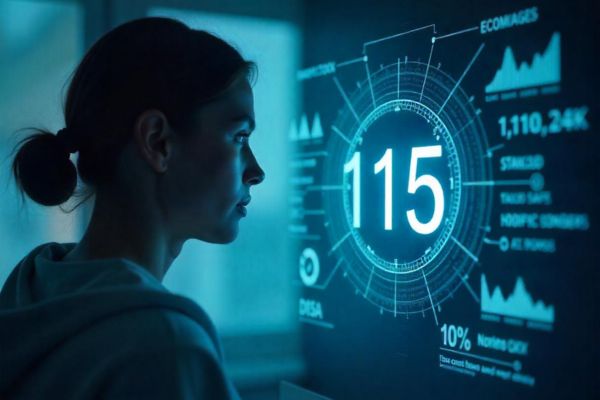For centuries, humans have sought to unravel the mysteries of mortality. Ancient civilizations relied on omens, astrology, and mysticism to predict lifespans. By the 17th century, a more scientific approach emerged with actuarial tables, tools used to estimate life expectancy based on factors like age, gender, and health history.
These tables became vital for industries such as insurance and pension planning. Today, however, the landscape is shifting dramatically. Enter the AI-powered death clock, a sophisticated tool leveraging artificial intelligence to predict lifespans with unprecedented accuracy. But why should economists and money managers take notice?
How the AI-Powered Death Clock Works
Unlike traditional actuarial models that rely on broad statistical averages, AI can process vast amounts of personalized data. This includes genetic information, lifestyle choices, medical history, and even social habits. By analyzing these factors, AI algorithms can predict individual lifespans with remarkable precision. The AI-powered death clock isn’t just a curiosity—it’s a powerful tool for those managing financial risk and planning for the future.
For example, consider someone planning for retirement. Traditional models might estimate their lifespan based on general data, potentially leading to either running out of savings or leaving unused wealth behind. AI, on the other hand, offers a personalized prediction, helping individuals make more informed decisions about savings and investments. This level of insight is invaluable not only to individuals but also to financial institutions managing large portfolios.
Economic Implications of AI Life Predictions
The implications of the AI-powered death clock extend far beyond personal finance. Economists are keenly interested in how these predictions can influence broader economic models. Accurate lifespan estimates can impact everything from retirement planning to healthcare costs. For governments, more precise life expectancy data could lead to better allocation of resources for social services and healthcare programs. For insurance companies, it means better risk assessment and pricing models, which could ultimately lead to more competitive products for consumers.
Money managers, too, have a lot to gain. Pension funds, for instance, operate on the assumption of how long people will live after retirement. Overestimating or underestimating this can lead to significant financial imbalances. With AI-driven insights, these funds can make more accurate projections, ensuring they remain solvent while providing for their members.
Ethical and Social Considerations
However, the rise of the AI-powered death clock raises important ethical questions. How comfortable are we with an algorithm predicting our lifespan? There’s a fine line between providing valuable insights and fostering a sense of fatalism. Critics argue that such tools might be misused by insurance companies to deny coverage or by employers to make discriminatory decisions. Therefore, transparency and regulation are crucial as this technology becomes more prevalent.
Moreover, there’s the human aspect to consider. Knowing one’s predicted lifespan could have profound psychological effects. Some might use the information to make positive changes, such as adopting healthier habits or planning meaningful experiences. Others might feel overwhelmed or defeated by the knowledge. Thus, how this information is communicated and used will be just as important as its accuracy.
The Future of Lifespan Prediction
As AI technology continues to evolve, the accuracy and scope of lifespan predictions will only improve. Future iterations of the AI-powered death clock might incorporate real-time health data from wearable devices, environmental factors, and even mental health metrics. The result could be a dynamic, constantly updated prediction that adapts to changes in behavior or health status.
For the financial sector, this could revolutionize how we think about long-term planning. Imagine a world where your retirement plan adjusts automatically based on your evolving life expectancy, or where health insurance premiums are tailored not just to your past and present health but to your projected future.
Conclusion: A Double-Edged Sword
The AI-powered death clock represents a fascinating intersection of technology, economics, and human psychology. For economists and money managers, it offers a tool of unparalleled precision for forecasting and planning. However, as with any powerful technology, it comes with responsibilities. Ensuring that these predictions are used ethically and transparently will be key to harnessing their potential benefits without causing unintended harm.
Ultimately, the AI-powered death clock could help us plan better for the future—not just financially, but in terms of living fuller, more intentional lives. As we stand on the brink of this new era, one thing is clear: the future of mortality prediction is here, and it’s powered by artificial intelligence.
For More related information : Click Here






